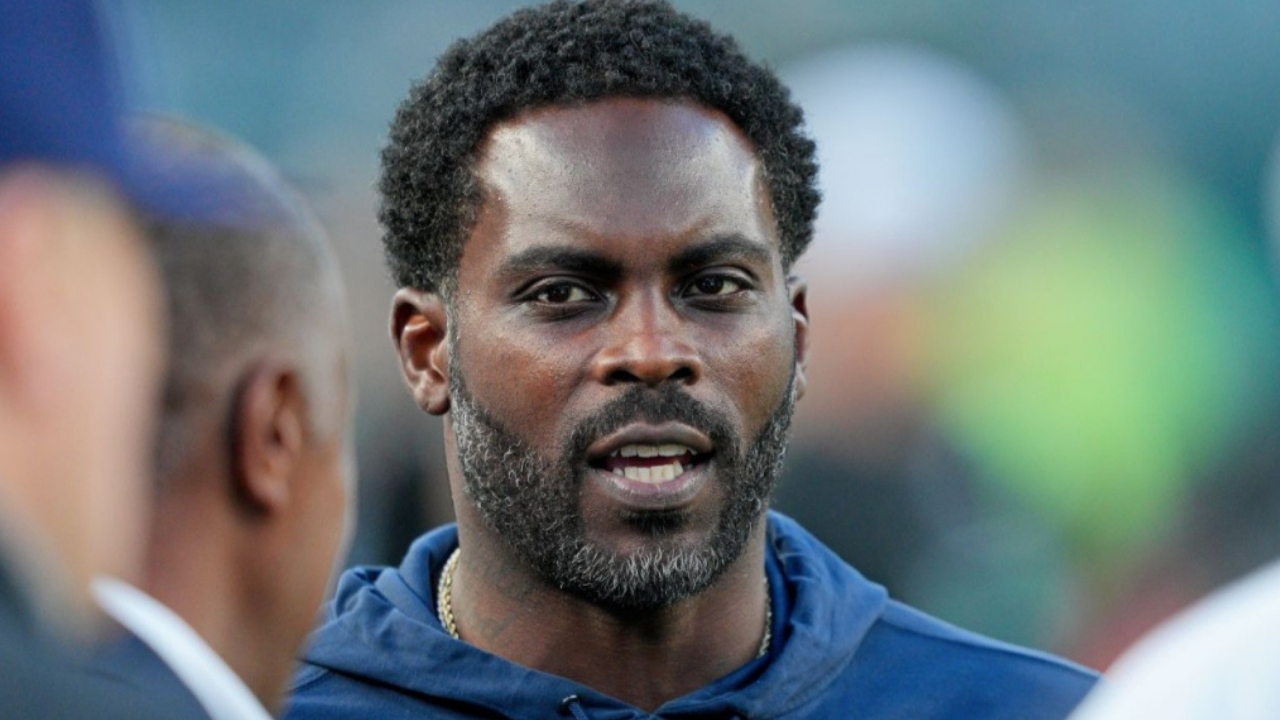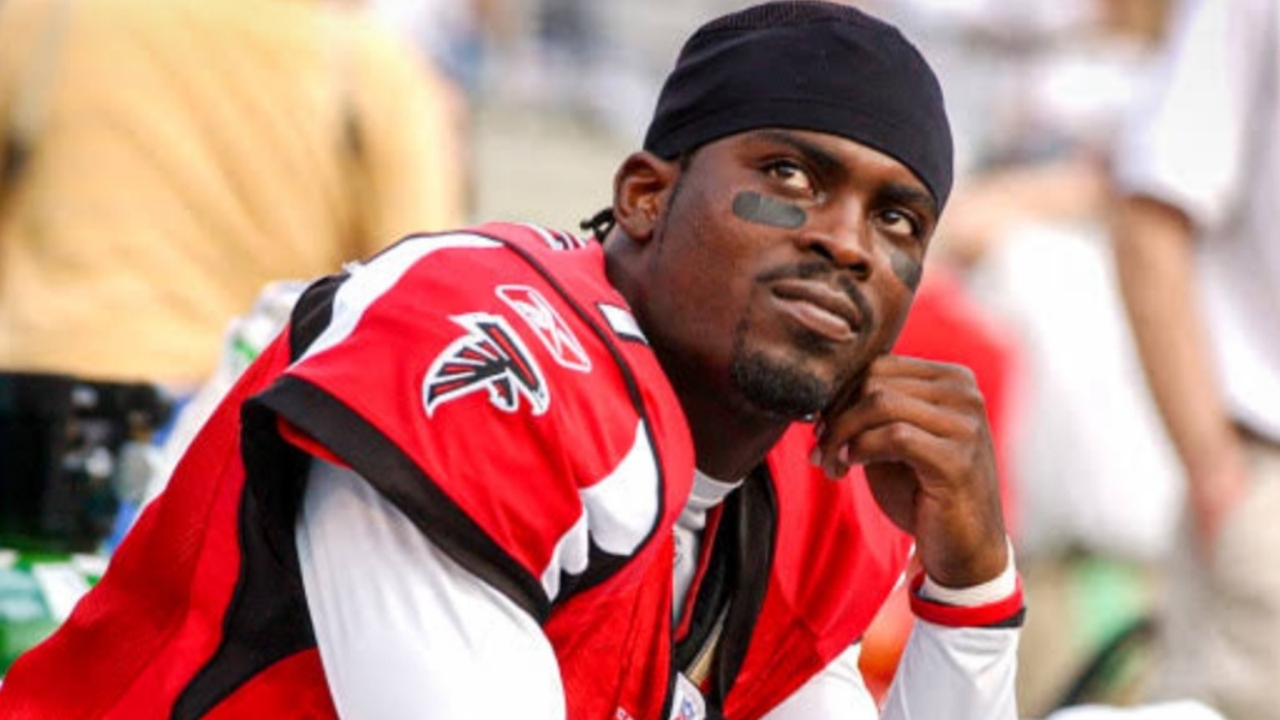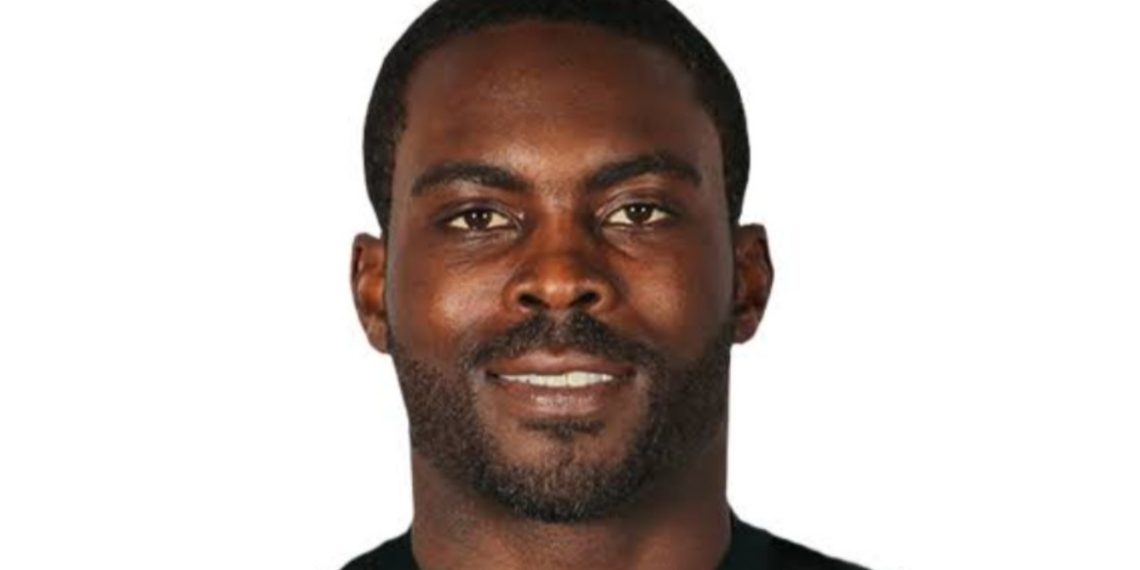Michael Vick is a retired American football player who made a lasting impact on the NFL, both for his groundbreaking playing style and his controversial legal issues.
Despite facing significant personal and financial challenges, including a prison sentence related to his involvement in a dog-fighting ring, Vick has managed to rebuild his wealth and establish a solid financial footing post-football. His net worth is estimated to be $4 million as of December 2024.
Early Life and Rise to Fame
Michael Dwayne Vick was born on June 26, 1980, in Newport News, Virginia. Growing up in a tough, crime-ridden neighborhood, Vick found solace and purpose in sports, specifically football.
His athletic ability became evident early on, and he earned recognition as a star quarterback during his high school years.
His success on the field led him to Virginia Tech, where he continued to impress with his dual-threat quarterbacking style that revolutionized the game.

At Virginia Tech, Vick’s electrifying performances made him one of the most exciting college quarterbacks of his time.
In 1999, as a redshirt freshman, he led the Hokies to an undefeated regular season and a national championship game.
His ability to throw and rush for yards in equal measure set a new standard for what quarterbacks could do on the field. Vick’s dynamic play earned him a third-place finish in the Heisman Trophy race, solidifying his status as a top prospect for the 2001 NFL Draft.
NFL Career: Dominating the Field
In 2001, Michael Vick was selected by the Atlanta Falcons with the first overall pick in the NFL Draft.
As the first African American quarterback ever taken first overall, Vick’s impact on the league was immediate.
He became known for his exceptional speed and athleticism, with a unique ability to rush for yards in a way no quarterback had ever done before.
His playing style disrupted the traditional quarterback role, combining passing and rushing in ways that would later influence the next generation of mobile quarterbacks.
Vick’s best years with the Falcons came between 2002 and 2006. He led the team to multiple playoff appearances, including a memorable victory over the Green Bay Packers in the 2002 playoffs, making history by securing the first-ever playoff win at Lambeau Field.
His 2004 season was a high point, with Vick rushing for over 900 yards and leading the Falcons to the NFC Championship Game. His rushing ability became legendary—by the end of his career, Vick would accumulate a record-breaking 6,109 career rushing yards, the most by any quarterback in NFL history.
However, Vick’s promising career took a dark turn in 2007, when he was arrested for his involvement in an illegal dog-fighting ring.
The discovery of the operation, coupled with Vick’s admission of guilt, led to his indictment, conviction, and subsequent imprisonment.
Legal Troubles and Bankruptcy
Vick’s legal issues began to surface in 2007 when federal investigators uncovered evidence of a dog-fighting operation at his property in Virginia. Vick was arrested, charged, and pled guilty to felony charges of dog fighting.

He was sentenced to 21 months in federal prison and was released in 2009. The arrest and the accompanying scandal led to widespread public outrage, and Vick’s NFL career seemed to be over.
In addition to his legal troubles, Vick was forced to declare bankruptcy in 2008, owing around $18 million to creditors. His financial situation had been mismanaged in the years leading up to his arrest, and he had accumulated a significant amount of debt.
As part of his bankruptcy proceedings, Vick opted for Chapter 11 bankruptcy, allowing him to honor his debts instead of discharging them through Chapter 7.
During his time in prison, Vick worked at a federal facility, earning just 12 cents an hour while mopping floors. After his release, he faced the challenge of rebuilding his life and finances.
Vick eventually took a job as a construction worker to help make ends meet, demonstrating his determination to overcome his financial setbacks.
The Comeback: Return to the NFL
Despite the scandal that overshadowed his career, Michael Vick received a second chance in the NFL. The Philadelphia Eagles signed him in 2009 as a backup quarterback to Donovan McNabb.
In 2010, after McNabb was traded, Vick had the opportunity to start again, and he seized it. That season, Vick delivered one of the best performances of his career, earning NFL Comeback Player of the Year honors.
In 2011, Vick signed a six-year, $100 million contract with the Eagles, making him one of the highest-paid players in the league at the time.
This contract included $40 million in guaranteed money, and Vick was paid an annual salary of $16.5 million.
At the time, he became only the third athlete in professional sports history, following Derek Jeter and Shaquille O’Neal, to sign multiple contracts worth over $100 million.
His 2010 comeback was punctuated by a remarkable season, where he threw for over 3,000 yards and 21 touchdowns while also rushing for multiple touchdowns.
However, injuries and inconsistent play plagued Vick in the years following his comeback, and by 2014, he was playing a backup role with the New York Jets. He also spent a brief time with the Pittsburgh Steelers before officially retiring from the NFL in 2017.
Despite a shortened prime due to his legal issues, Vick left a lasting legacy, particularly in how the quarterback position is played.
Financial Recovery and Debt Repayment
Michael Vick’s financial situation took a turn for the better after his return to the NFL. While he had once been deeply in debt, Vick worked hard to pay off his creditors, spending a large portion of his post-prison income to settle his financial obligations.
Court documents from 2014 revealed that he had successfully repaid 87% of his debt by that time, and he was fully debt-free within a few years.
In order to settle his debts, Vick lived modestly on an annual salary of around $300,000, giving the rest of his earnings to creditors.
By making these sacrifices, he was able to regain financial stability and recover from the disastrous financial decisions of his earlier years.
Post-NFL Ventures: Real Estate and Investments
After retiring from football, Michael Vick turned his attention to other business ventures, including real estate investments.
Over the years, Vick has owned several properties, and he has made substantial profits through buying and selling homes.
In 2008, Vick and his wife sold a property in Davie, Florida, for $1.4 million. The 6,295-square-foot home was located on a 21,250-square-foot plot of land and featured luxurious amenities, such as a home theater and a coffee bar. Vick had originally purchased the property in 2013 for $1.32 million.
Vick’s most notable real estate transaction came in 2020 when he and his wife listed a 9,280-square-foot home in Plantation, Florida, for $2.4 million.
The home featured six bedrooms, a media room, a guest house, a custom pool, and a basketball court. However, Vick eventually sold the property for $1.4 million.
In 2022, Vick and his wife purchased a home in Southwest Ranches, Florida, for $1.897 million. The home features modern amenities and offers plenty of space for the couple and their family.
The Legacy of Michael Vick
Michael Vick’s career, marked by both extraordinary athletic achievement and profound personal failure, offers valuable lessons on redemption, financial responsibility, and resilience.
His time in the NFL was revolutionary, and his influence on the quarterback position is still felt today. Despite the mistakes he made off the field, Vick’s ability to rebuild his wealth and career serves as a testament to the power of second chances.
While his net worth of $4 million is far from the peak of his NFL earnings, Vick has shown that it is possible to recover from financial ruin.
He has emerged from bankruptcy and legal troubles to find stability in both his personal and financial life.





